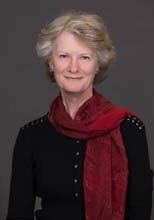[Seminar] "Diversity in Hot Vent Communities in the Context of Seabed Mining" by Prof. Tunnicliffe

Date
Location
Description
Abstract:
As the International Seabed Authority completes the regulations to enable exploitation of seabed mineral resources, scientists are challenged to provide guidance around environmental and conservation concerns. At hydrothermal vents, it is important to understand the nature and distribution of diversity within the communities sustained by chemosynthetic production. We find that diversity differs among regions in the Pacific Ocean. In the Northeast Pacific, foundation species create habitat to foster similar species groups. However, the nature of the setting has a strong effect on beta-diversity along a ridge crest. The Northwest Pacific offers opportunities to examine how geophysical processes influence species accumulation and the formation of biological hotspots that may be important sites for conservation.
Biography:
Verena Tunnicliffe is a marine biologist at University of Victoria in Canada where she holds a Canada Research Chair in Deep Ocean Research. She combines a drive for ocean exploration with a passion to understand the nature and functions of novel communities. A lifetime of ocean exploration has stretched from coral reefs to subsea volcanoes making hundreds of dives with SCUBA and, then, both manned and remotely operated submersibles. She has led and worked in interdisciplinary teams exploring hydrothermal systems around the Pacific and especially on Juan de Fuca Ridge where her research helped establish Canada’s first MPA, the Endeavour Hot Vents Marine Protected Area. Her research in marine habitats in extreme conditions has collected over 80 new species (with nine named after her).
She has worked with the NOAA Earth-Ocean Interactions Program and the Ocean Exploration Program to contribute to the rationale for the establishment of the Mariana Trench Marine National Monument. For a decade, she helped to make the “Ocean On-line” a reality as Director of the subsea observatory, VENUS, in British Columbia. A long-term program examines the impact of climate change on coastal communities. Through both at-sea and virtual exploration, she has encouraged novel technological developments, especially in Canadian industry. She seeks new techniques to bring a greater depth of understanding of the ocean world to research, education and the public. Current research focusses on deep ocean conservation, including environmental management around deep-sea mining.
Intra-Group Category
Subscribe to the OIST Calendar: Right-click to download, then open in your calendar application.



